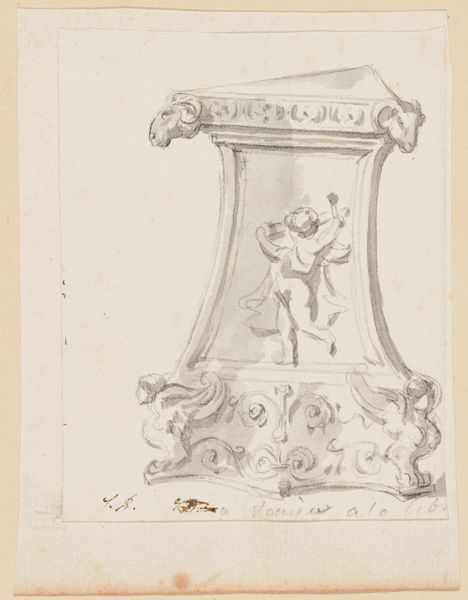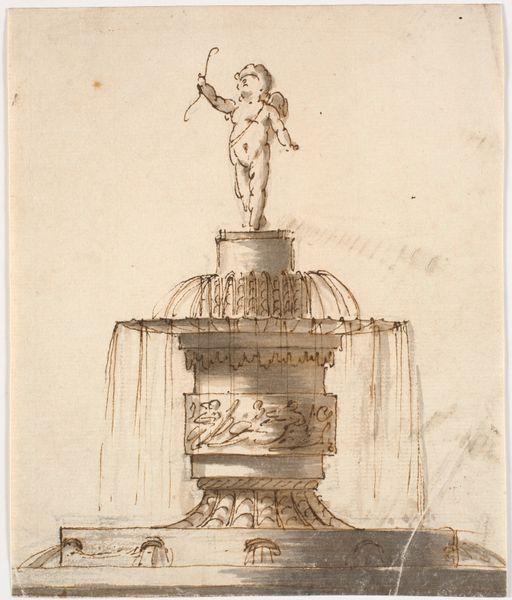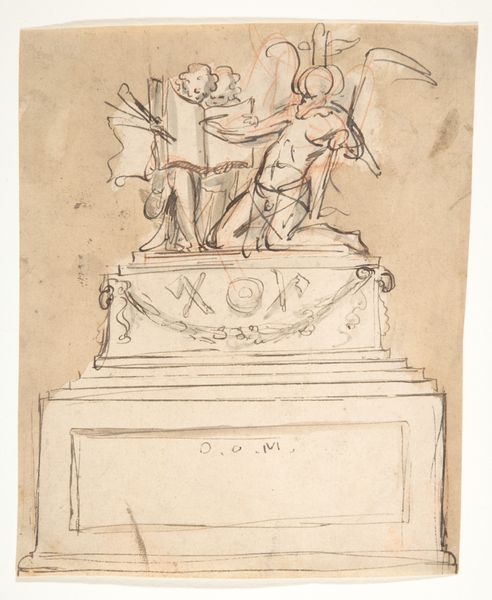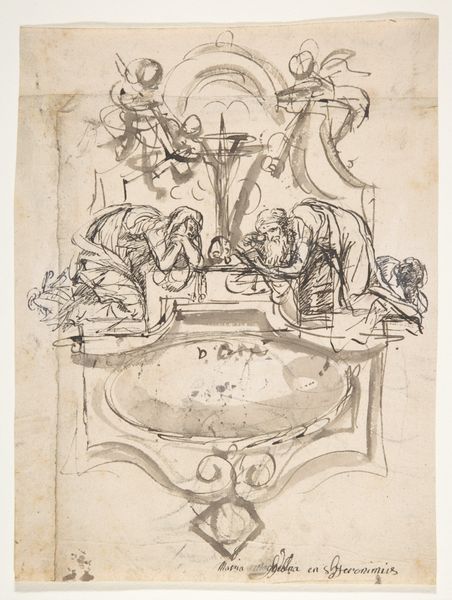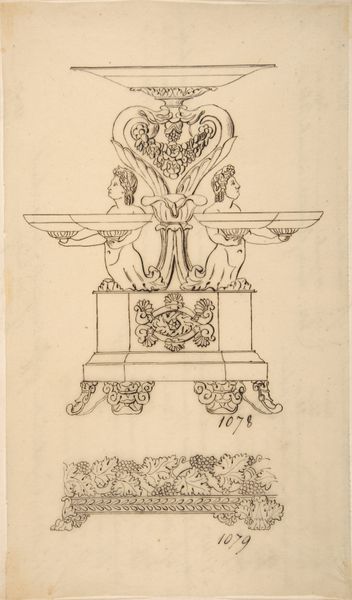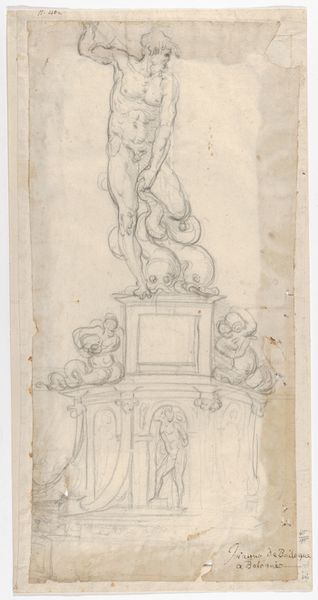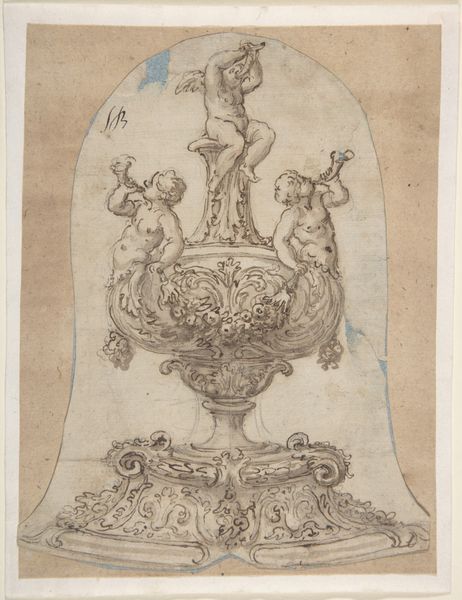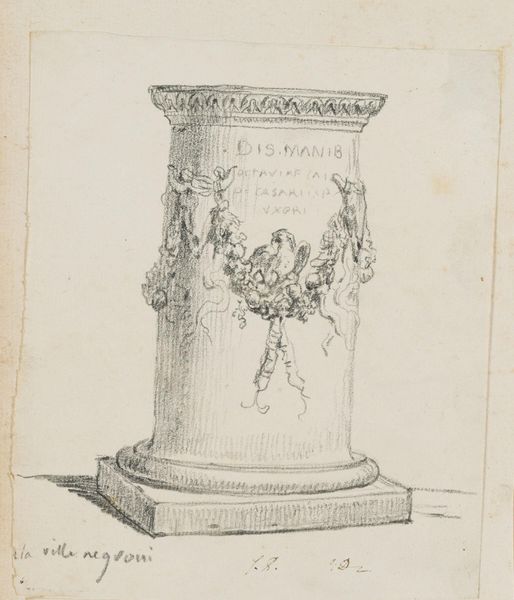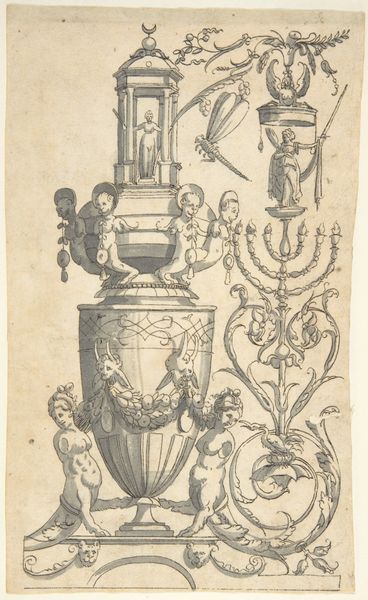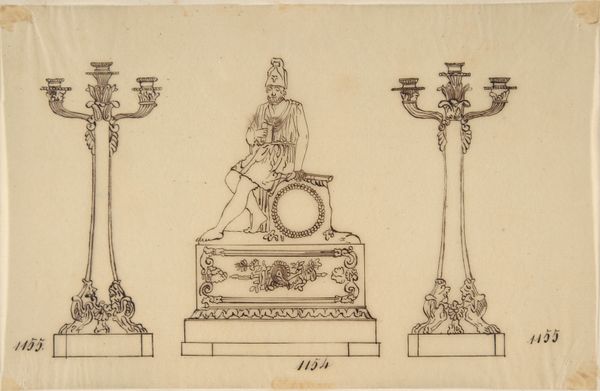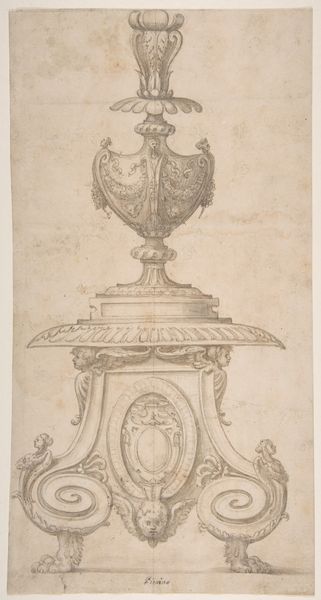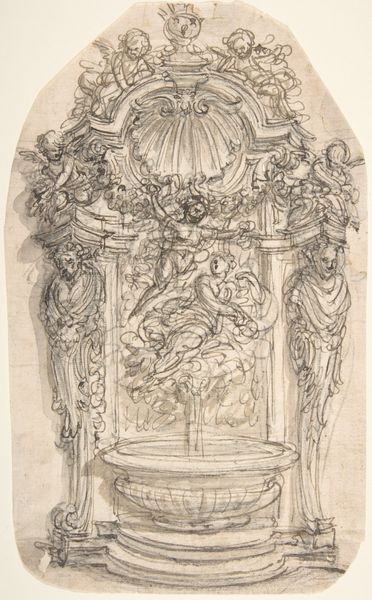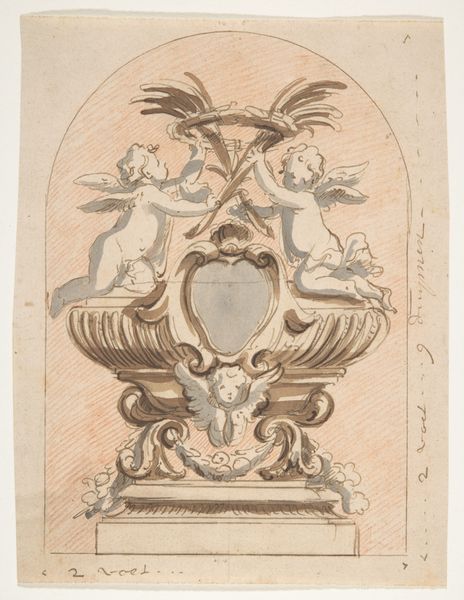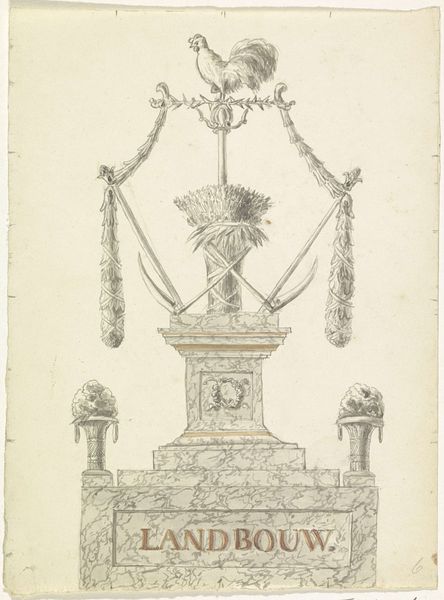
drawing, print
#
drawing
# print
#
pen sketch
#
mannerism
#
figuration
#
history-painting
#
trompe-l'oeil
Dimensions: image: 6 1/4 x 4 3/4 in. (15.8 x 12 cm)
Copyright: Public Domain
Editor: Here we have an ink drawing titled "Tomb Monument with Skeletons," dating back to the 17th century, artist unknown. It’s a little rough, like a preparatory sketch. What strikes me are the skeletons... they seem almost cheerful despite the morbid subject matter. How do you interpret this work? Curator: Well, the immediate visual hook is the *memento mori*, isn’t it? The skeletons, the tomb... these are obvious symbols reminding us of death's inevitability. But, as you say, there’s an unusual lightness to their depiction. Editor: Exactly! It's not the gloom I'd expect. Curator: Precisely. Perhaps this artist is playing with a shift in the perception of death, where skeletons become symbolic of the soul's journey, rather than simple decay. Notice how the tomb is crowned with a finial reminiscent of budding flowers – a very explicit symbol of hope. Are we to read death as merely a passage to something more? Editor: That’s fascinating. The blossoming finial paired with the decaying figures…a contrast that suggests rebirth! So, you're saying it might not be just a reminder of mortality but a comment on eternal life? Curator: Indeed. Look at how these skeletal figures support decorative garlands. Aren't they strangely festive for symbols of death? They function, almost ironically, as cherubic figures within the overall composition, which brings us back to the symbolism of continual cultural memory. It almost speaks of the dance between death and life in a very celebratory tone. Editor: I never thought of it that way. I was so caught up on the skeletons themselves; I didn’t consider the interplay. Thanks! Curator: A pleasure. Visual symbols are so complex – the weight of tradition interacting with novel and original interpretations is what gives them their enduring power.
Comments
No comments
Be the first to comment and join the conversation on the ultimate creative platform.
